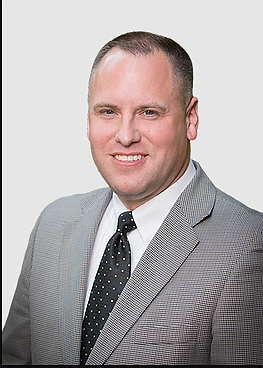OPINION: Evidence is clear — education choice improves outcomes
It’s all about improving outcomes for children. As President of Mountain States Policy Center, I’m proud to announce the launch of "Education Choice Improves Outcomes."
This interactive effort includes seven new informational videos, an interactive website, a complete listing of programs, debunking myths, and much more. Our recent Idaho Poll showed a third of Idahoans are not familiar with education choice, but when they know about it, they overwhelmingly approve.
What if you could use some of the money allocated to your child’s education to get them extra tutoring — something that would supplement your public school? What if you had the resources to send your child to a private or specialty school to focus on a specific subject on which they excelled? What if, like me, you had a special needs child that needed extra assistance outside the classroom — and you finally had the ability to pay for it?
This is not about shutting down public schools. As a state and region, we need to do better to make sure parents and families have more choices, and businesses have a future workforce that is skilled and qualified. When families have more choices, the outcomes for our children improve.
How do we know this? On mountainstatespolicy.org you’ll find a complete list of education choice programs from across the country — which ones succeeded, which ones failed, and which ones made no difference. The vast majority show education choice programs save taxpayers money, allow for more diverse schools, and improve academic outcomes for those participating and those who choose to stay in their local schools.
Unfortunately, those interested in the status quo are frightening citizens with a lot of myths. Here are the top six.
Myth One — Allowing more education choice will harm public schools
In reality, public schools are part of education choice. If your neighborhood public school is working for you, nothing will change. In fact, education choice can help improve your local public school. Why? Because parents will have more resources to get their child extra tutoring or assistance outside of the classroom. This can take some of the burden off your public school.
Myth Two — Education choice violates the separation between church and state
The U.S. Supreme Court has ruled that appropriately designed education choice programs are fully constitutional. And numerous state courts have upheld the constitutionality of education choice. Still, it’s important to know that most won’t use education choice to send their child to a private or religious school. Most will stay in public schools, and instead might use education choice to help pay for the extra tutoring or help that their child so desperately needs.
Myth Three — Students don’t benefit from education choice
Seventeen major studies have examined academic outcomes for education choice participants. Eleven of them have reported an increase in student outcomes. Four reported no effects. Only two reported negative effects. Education choice has led to higher graduation rates and 43% of students who have used education choice are more likely to enroll in college.
Myth Four — There’s no accountability when it comes to education choice
All education choice programs have a level of administrative and financial accountability. Most have academic accountability. In most states, your student still must either take state assessments or tests to measure whether they are meeting standards. Furthermore, families must opt-in to education choice programs, and they can opt out at any time. This adds another layer of accountability. If your education choice program isn’t working, you have the greatest accountability tool of all – the ability to leave.
Myth Five — Education choice hurts rural communities
A Brookings Institute report shows a full 70% of rural families live within ten miles of various education choice options, including charter schools and private schools. As other states have advanced education choice, supply has increased to meet demand. In Florida, the number of private schools in rural areas doubled after numerous expansions of education choice. In Arizona, a public school is 15 times more likely to lose a student to another public school than a private school.
Myth Six — Education choice is anti-public school
Public schools are critical to the success of our region and country. But they don’t always work for everyone. And when that happens, children and families should be able to get the extra help they need. Every child can learn and should have the chance to do so in a way that meets their individual learning needs. We’re paying to educate the child. That must be what comes first. As state courts have recently ruled, public schools and education choice can exist at the same time.
Education choice is important because education choice improves outcomes for children. Every state does it differently, but the Mountain States are behind the times when it comes to providing your family with more options. In places where education choice is allowed, the results are impressive and the future for children improves. That is what’s most important.
• • •
Chris Cargill is the president and CEO of Mountain States Policy Center, mountainstatespolicy.org.

